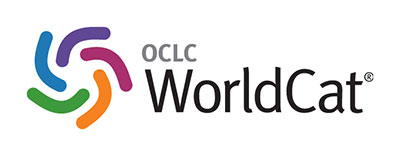El nuevo modelo de gestión educativa y su impacto en las escuelas de educación básica del cantón Cañar, Ecuador
DOI:
https://doi.org/10.26871/killkanasocial.v2i4.100Resumen
El nuevo modelo de Gestión Educativa constituyen en un paradigma de organización interna y externa a nivel institucional que permite canalizar en forma efectiva y oportuna las directrices a ser aplicadas dentro del campo educativa desde diferentes ámbitos; se plantea una nueva reestructuración que garantice y asegure el cumplimiento del derecho a la educación, un camino que conduciría a la calidad y calidez para fortalecer los servicios educativos atendiendo las realidades locales y culturales, impactando de sobremanera en las escuelas de educación básica.
Descargas
Citas
Álvarez, B., Aguirre, M, M., & Vaca, S. (2010). Interacción Familia-Escuela. Análisis de contenido sobre el discurso de docentes y familias (Investigación desarrollada en Centros Educativos de Ecuador). Revista española de orientación y psicopedagogía, 320-334.
ASE. (2013). Modelo Nacional de Apoyo y Sseguimiento.
Baquerizo, R. (2014). La calidad de la gestion educativa. Revista Científica ECOCIENCIA, 1-21.
Barros, J. M. (2012). Indicadores de calidad educativa en centros escolares del Distrito Metropolitano de Quito y propuesta de un modelo de calidad pertinente para el Ecuador.
Consejo Nacional de Educacion. (2007). Plan Decenal de Educacion del Ecuador 2006-2015. Año 2 de su Ejecucion.
Contreras, A., & Muñoz, V. (2016). Estado actual de los planes de mejora en los Centros de Desarrollo Infantil Privados .
FLACSO. (2008). Desafíos de la educación en el Ecuador: calidad y equidad. Quito: FLACSO.
Flores, J. (2013). Incidencia de la Planificación Estratégica en la gestión de la calidad de los ámbitos de la gerencia educativa.
Illescas, S. (2013). Evaluación del modelo de gestión del proyecto emblemático nacional" Unidades educativas del Milenio y su impacto de la política pública educativa. Caso Ecuador-Cotopaxi del 2008 al 2012. Quito.
Mesa de Educacion. (23 de 12 de 2002). Obtenido de http://www.filo.uba.ar/contenidos/carreras/educa/catedras/educacion1/sitio/Ecuador.htm
Ministerio de Educación. (1 de 1 de 2016). http://educacion.gob.ec/. Obtenido de http://educacion.gob.ec/: http://educacion.gob.ec/reestructuracion-institucional/
Ministerio de Educación. (02 de 04 de 2018). Obtenido de https://educacion.gob.ec/informacion-concursos-de-meritos-y-oposicion/
Ministerio de Educación. (02 de 04 de 2018). Educacion.gob.ec. Obtenido de https://educacion.gob.ec/fortalecimiento-del-ingles-prin/
Ministerio de Educacion. (02 de 04 de 2018). Ministerio de Educacion. Obtenido de educacion.gob.ec: https://educacion.gob.ec/que-es-el-nuevo-modelo-de-gestion-educativa/
Organizacion de Estados Iberoamericanos. (1994). Sistemas Educativos Nacionales - Ecuador.
Paladines, C. (2015). Perspectivas de cambio en la Educación Básica y en el Bachillerato: Ecuador: 2007-2013. Praxis educativa, 13-31.
Quishpe, L. (2017). Los procesos de reclutamiento y selección del personal administrativo y de servicio en el distrito de educación 06d04 Colta-Guamote, y su influencia en el desarrollo institucional periodo 2014 – 2015.
Rodríguez, M. (2017). Unidades educativas del Milenio, educación intercultural bilingüe y (des) igualdad en el acceso a la educación en Ecuador: Un análisis desde la investigación etnográfica. Runa, 41-55.
Sistema Nacional de Evaluación y Rendición Social de Cuentas. (2008). Quito.
Soto, S., Sánchez, T, Martillo, E., & Sarmiento, C. (2015). Calidad educativa en Ecuador. Calidad Educativa.
Subsecretaría de Administración Escolar. (02 de 04 de 2018). Obtenido de https://educacion.gob.ec/wp-content/uploads/downloads/2014/03/9.2-SUBSECRETARIA-DE-ADMINISTRACION-ESCOLAR.pdf
Descargas
Publicado
Cómo citar
Número
Sección
Licencia
Se autoriza la reproducción total y parcial, y la citación del material que aparece en la revista, siempre y cuando se indique de manera explícita: nombre de la revista, nombre del autor(es), año, volumen, número y páginas del artículo fuente. Las ideas y afirmaciones consignadas por los autores están bajo su responsabilidad y no interpretan necesariamente las opiniones y políticas del Consejo Editorial de la Revista Killkana Sociales ni de la Universidad Católica de Cuenca.
La Revista Killkana Sociales utiliza la Licencia Creative Commons de Reconocimeinto-NoComercial-CompartirIgual 4.0, que es la siguiente: CC BY-NC-SA 4.0 Internacional.










